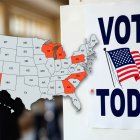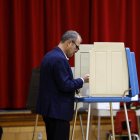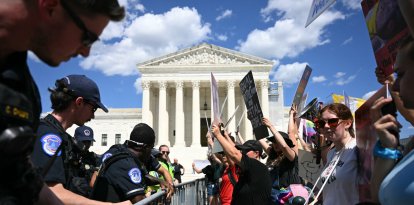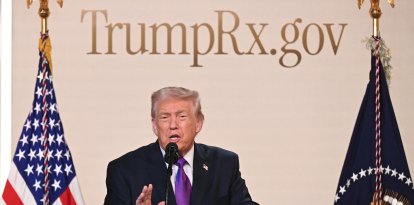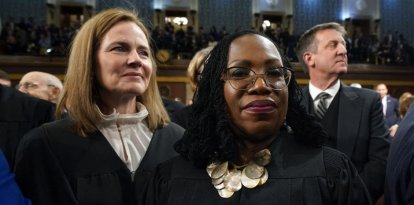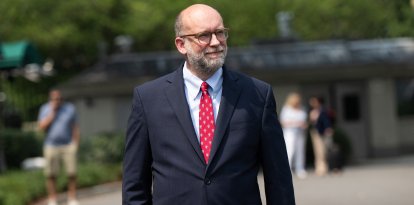Biden-Harris administration vetoes ID requirement to vote in five key states
Texas, Florida, Ohio, Virginia and Alabama maintain legal battles against the federal government over legal requirements that voters must provide to participate in the Nov. 5 election.
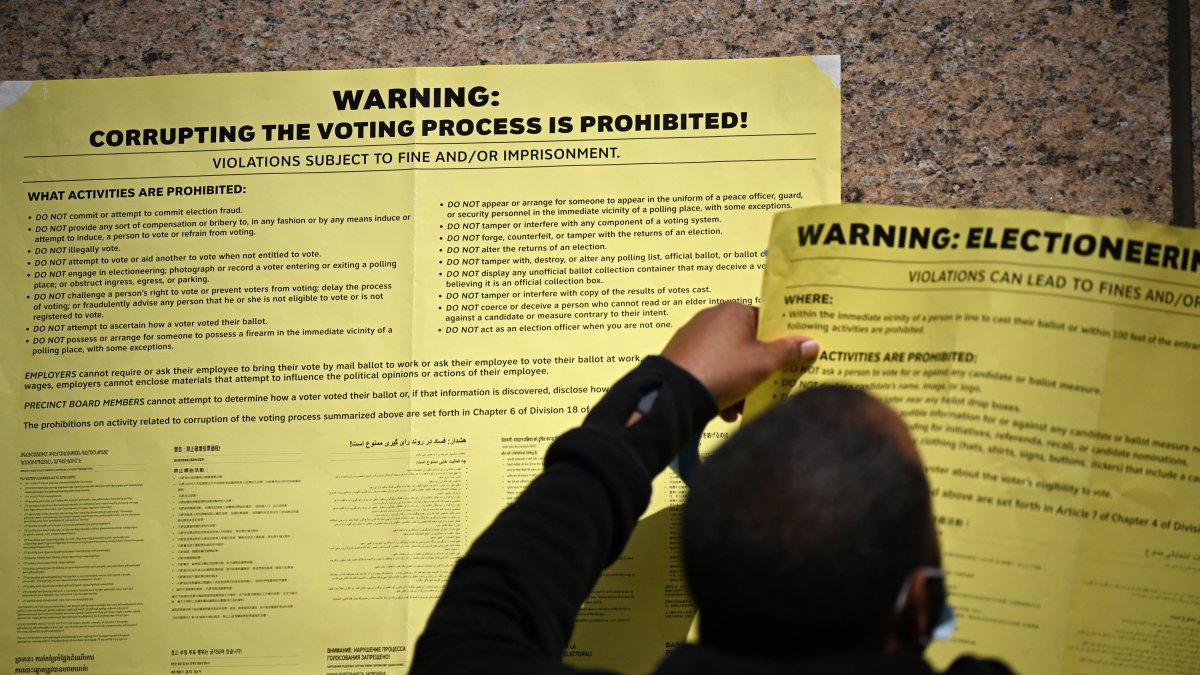
A worker puts up signs warning against voter fraud.
In the United States there is, as of today, no federal law that standardizes electoral processes and protects democracy in a comprehensive manner. There are many states in the country where voting is possible, despite not being a citizen of the country.
This fact is condemned by conservatives, while the Biden-Harris administration maintains a sort of complicity with the system. The best example may be California’s legislation. But there are many other states in which there are still no total guarantees for the security of the electoral process.
Last week, Ohio Secretary of State Frank Larose took the federal government to court for refusing to provide the state with "additional records" that LaRose described as "essential to verifying the citizenship status of all Ohio voters."
In the Republican's statement accompanying the complaint, he contends that the Biden-Harris -administration is obstructing and abusing its power to prevent non-citizens from being removed from the voter rolls.
In the state of Ohio, a photo ID is required to vote. However, this document can be a state driver's license, which are issued in the normal, ordinary manner to any individual who has permanent residence in the state.
The lawsuit alleges that the federal administration, "on at least four separate occasions, failed to provide Ohio with access to the federal citizenship verification records necessary to prevent non-citizens from voting," according to the release.

Politics
Justice orders Virginia to restore voters removed from rolls on suspicion of being non-citizens
Williams Perdomo
Citizenship guarantees the right to vote
In the same week as LaRose, Ken Paxton, Texas attorney general, also announced legal action against Alejandro Mayorkas' Department of Homeland Security on similar grounds.
Paxton's lawsuit accuses the Biden-Harris administration of failing to comply with "federal law requiring them to assist states in verifying the citizenship status of potentially ineligible persons registered to vote."
In this election, the state of Texas says it is investigating the legal status of nearly half a million voters who will cast their ballots at the polls on Nov. 5 to elect the nation's next president. The reason for these checks is that these half a million voters registered without presenting a document of identification issued by the state of Texas.
"The Biden-Harris Administration has refused to comply with federal law, which is one more hurdle Texas must overcome to ensure freeand fair elections in our state," Paxton said in a statement.
Florida, Virginia and Alabama also file complaints
The complaints from Texas and Ohio join those that already existed in other states with Republican governments. Florida filed its lawsuit against the Department of Homeland Security in mid-October. The grounds were identical to those alleged by Texas and Ohio.
In Alabama, state authorities claim they discovered that there were at least 3,000 individuals who managed to register to vote without having U.S. citizenship. In this sense, state authorities initiated a series of processes to prevent more individuals without citizenship from voting in the election.
As a result, the Justice Department sued the state and Secretary of State Wes Allen in late September, alleging that they violated the National Voter Registration Act of 1993 (NVRA), as the update of the voter registration rolls occurred within the aforementioned 90-day period.

Politics
Georgia election authorities to investigate 156 non-citizens who registered to vote
Williams Perdomo
The Justice Department also sued the state of Virginia for increasing requirements and safeguards for only U.S. citizens to vote in the November election. This summer, Republican Gov. Glenn Yougkin ordered state agencies to "undertake election security efforts in the run-up to the November election."
For the DOJ, these initiatives also run counter to the 1993 NVRA, which was not replaced in Congress by the Republican "SAVE" bill, which died in the House of Representatives.





